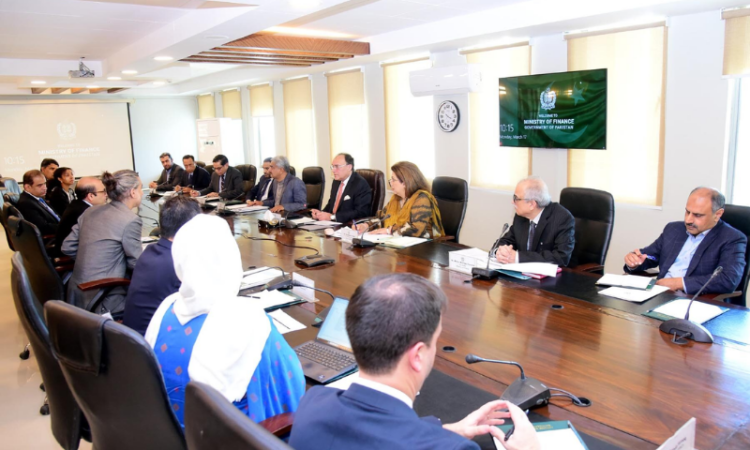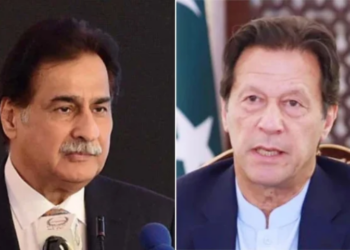Islamabad, March 17, 2025: Federal Minister for Finance and Revenue, Senator Muhammad Aurangzeb, held a follow-up meeting with the World Bank team on Monday to review Pakistan’s economic and fiscal agenda under the 10-year Country Partnership Framework (CPF), which includes commitments of $20 billion.
According to a press release from the Ministry of Finance, the framework prioritizes key development areas such as health, education, climate resilience, and sustainable economic growth. The meeting was attended by senior officials from the Ministry of Finance and the Federal Board of Revenue (FBR).
The discussion primarily focused on investment financing for economic reforms, with the World Bank team presenting their ongoing work on a National Growth and Fiscal Program. This comprehensive initiative aims to tackle fiscal and economic challenges, addressing key issues such as unlocking barriers to inclusive and sustainable growth, revenue mobilization and improving tax collection, enhancing the quality and efficiency of public expenditure and strengthening accountability in service delivery.
A key objective of these reforms is to attract productive private sector investment while ensuring public funds are directed towards inclusive development initiatives.
The World Bank also briefed Minister Aurangzeb on their data analysis of policy proposals, incorporating insights from chambers of commerce, trade bodies, and associations during pre-budget consultations. This aligns with the government’s decision to initiate the budget planning process in January, ensuring a well-grounded and practical revenue policy.
During the meeting, the finance minister stressed the importance of a comprehensive, integrated approach to fiscal, trade, and private sector reforms at both federal and provincial levels. He emphasized the need for performance-based and outcome-driven reforms, directly linked to human development and socio-economic progress.
Minister Aurangzeb reaffirmed the government’s commitment to a nationally coordinated fiscal strategy, as outlined in the National Fiscal Pact, to ensure macroeconomic stability and sustainable growth. He highlighted that this unified approach would be crucial in realizing Pakistan’s long-term economic aspirations.
The meeting concluded with a shared commitment to ongoing collaboration between the Ministry of Finance, the World Bank, and other stakeholders, with the goal of advancing Pakistan’s reform agenda and fostering long-term economic resilience.








